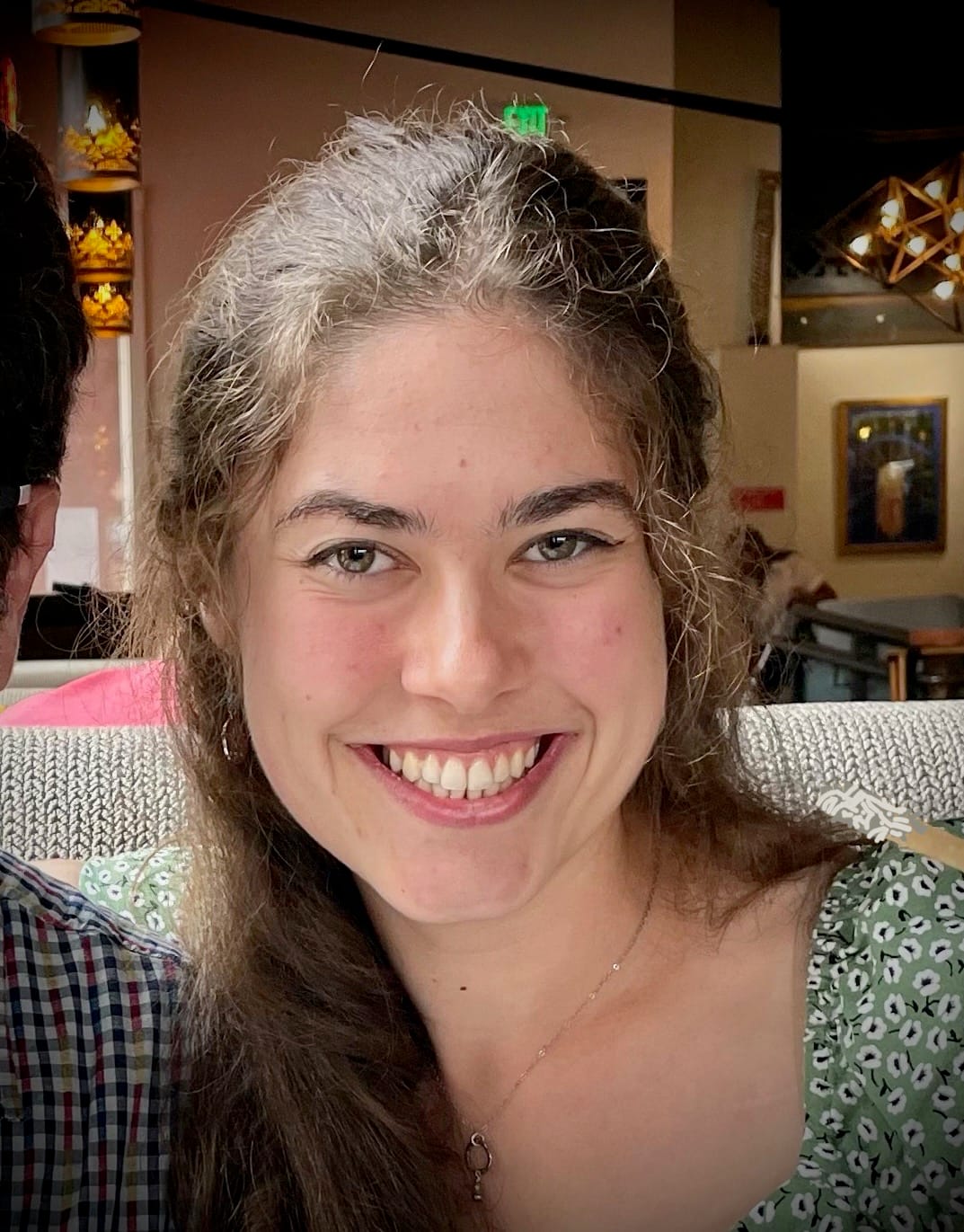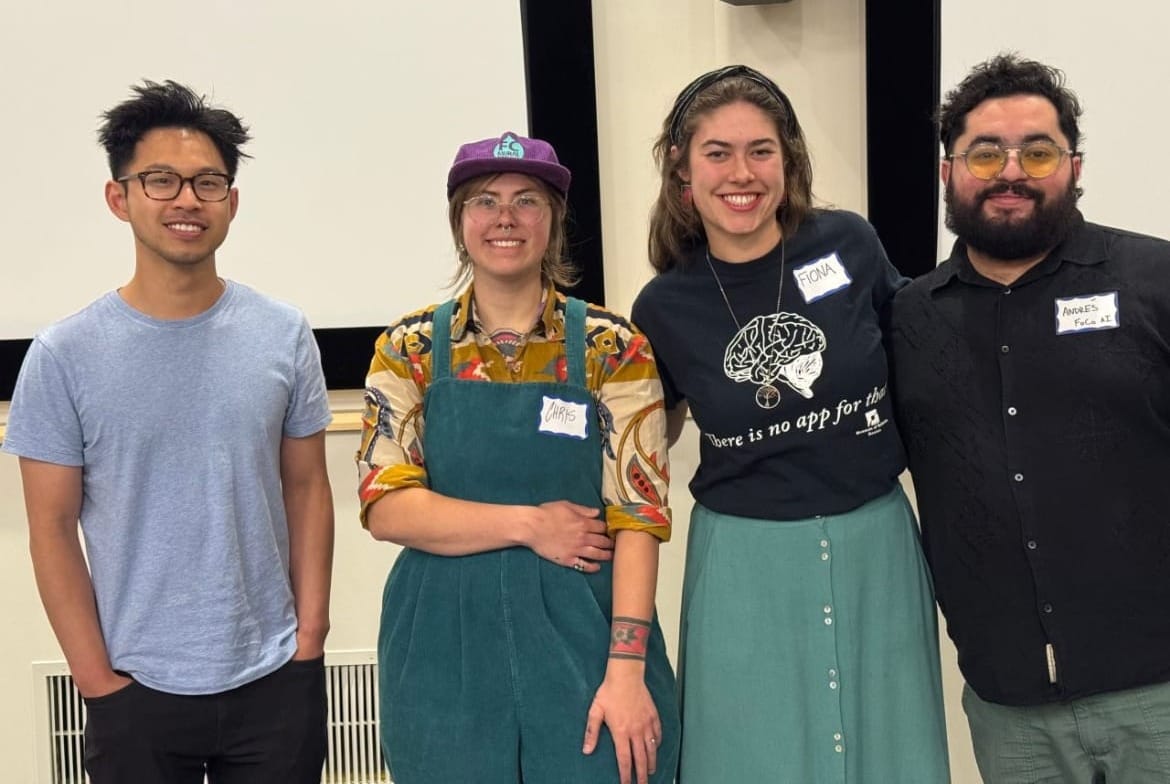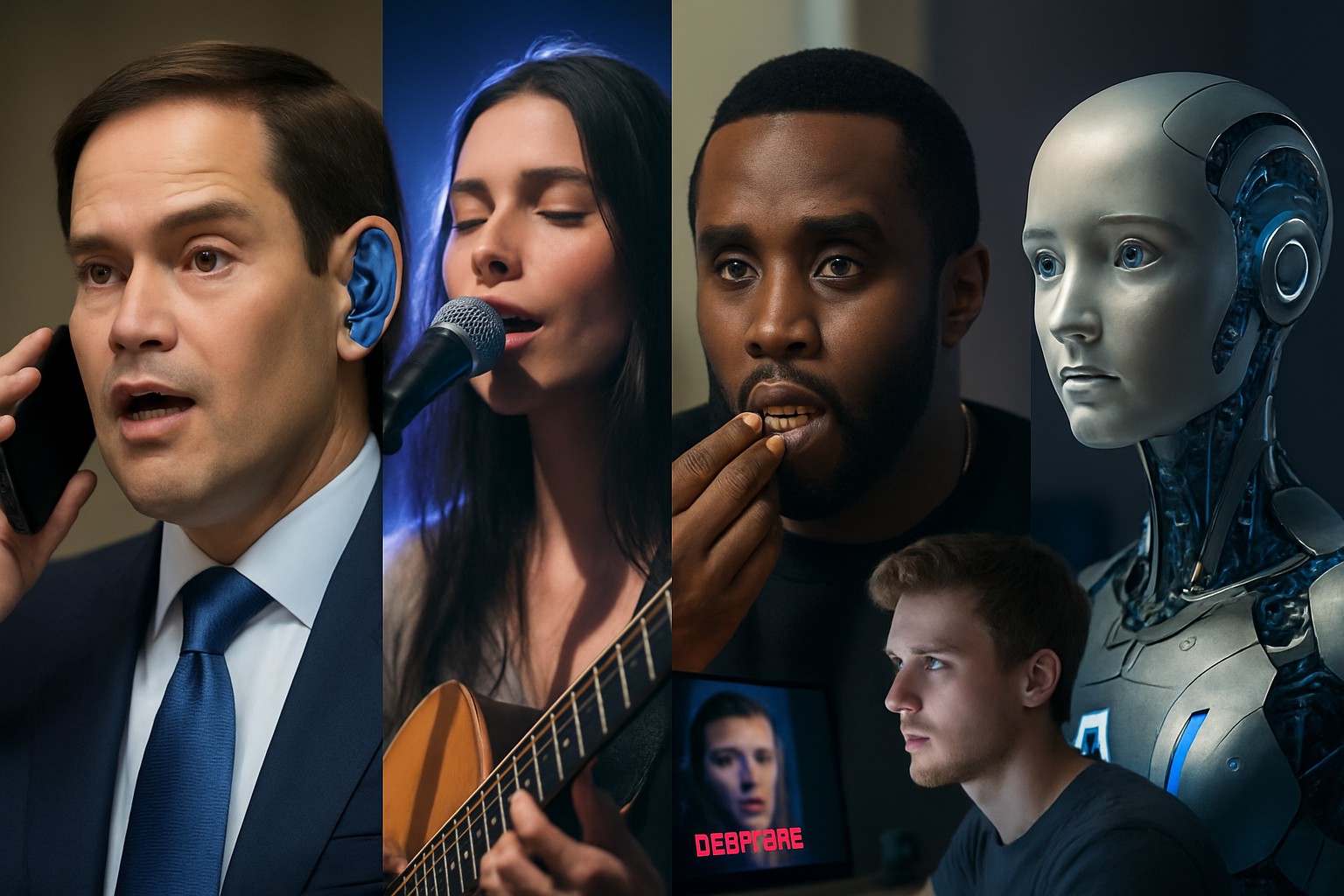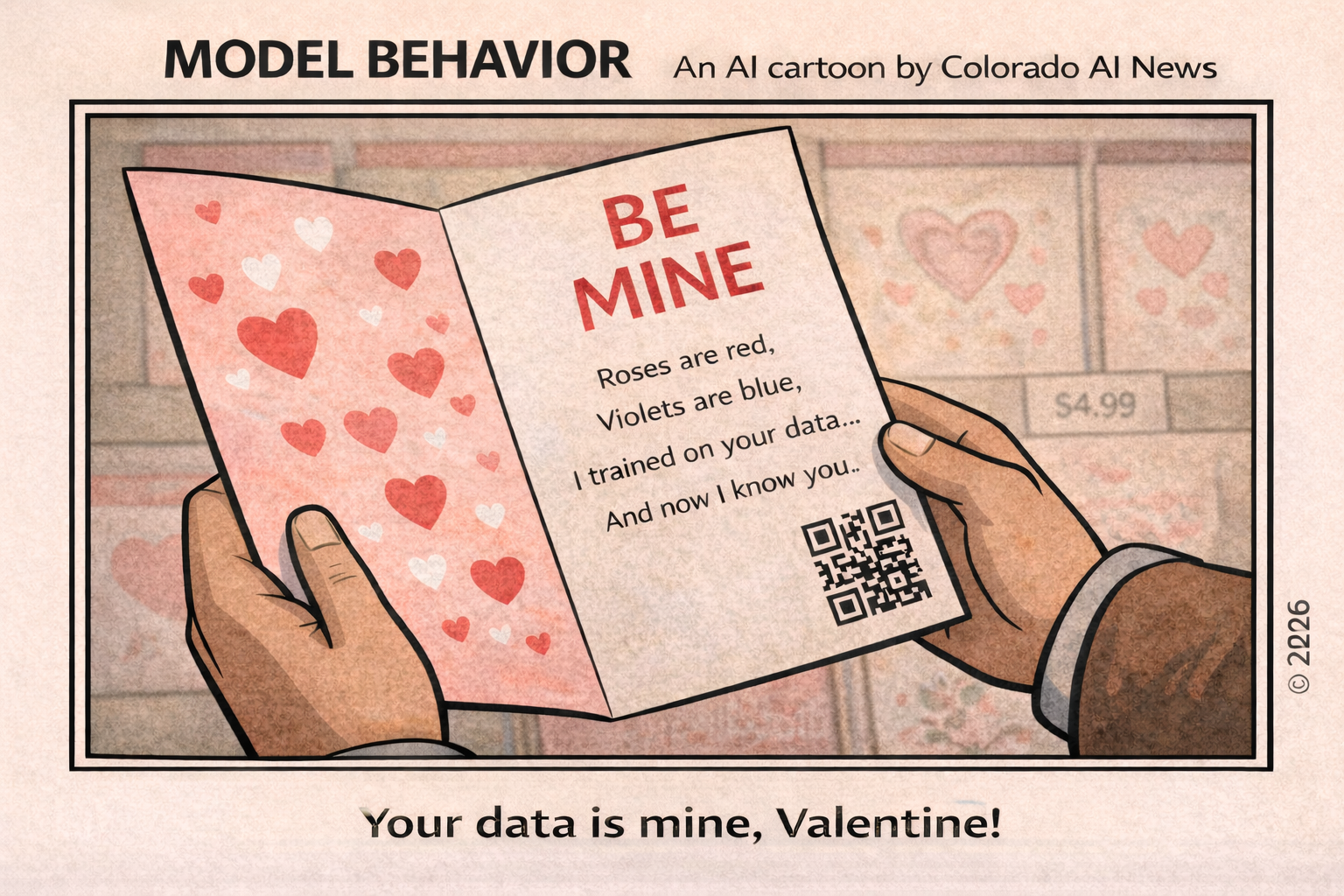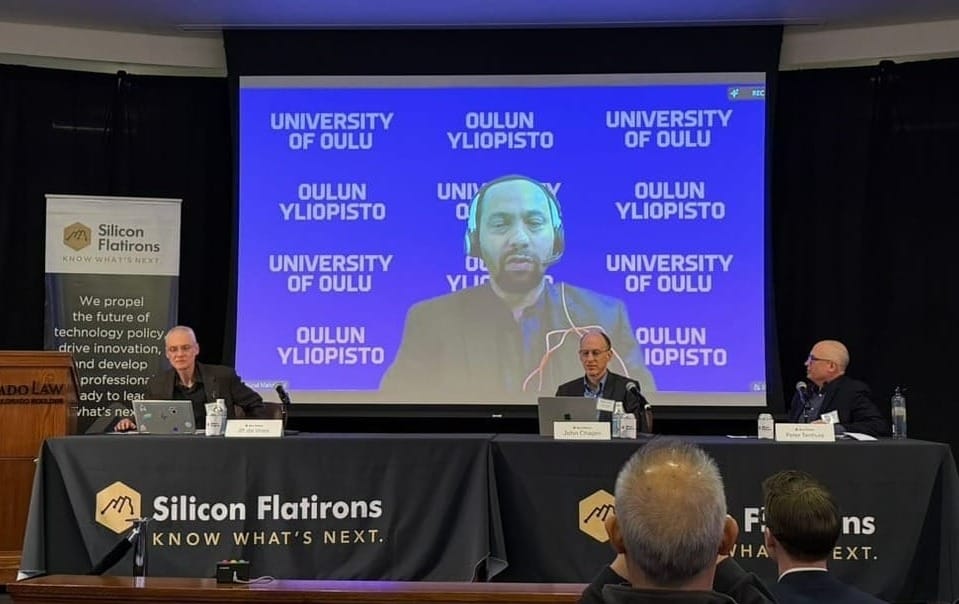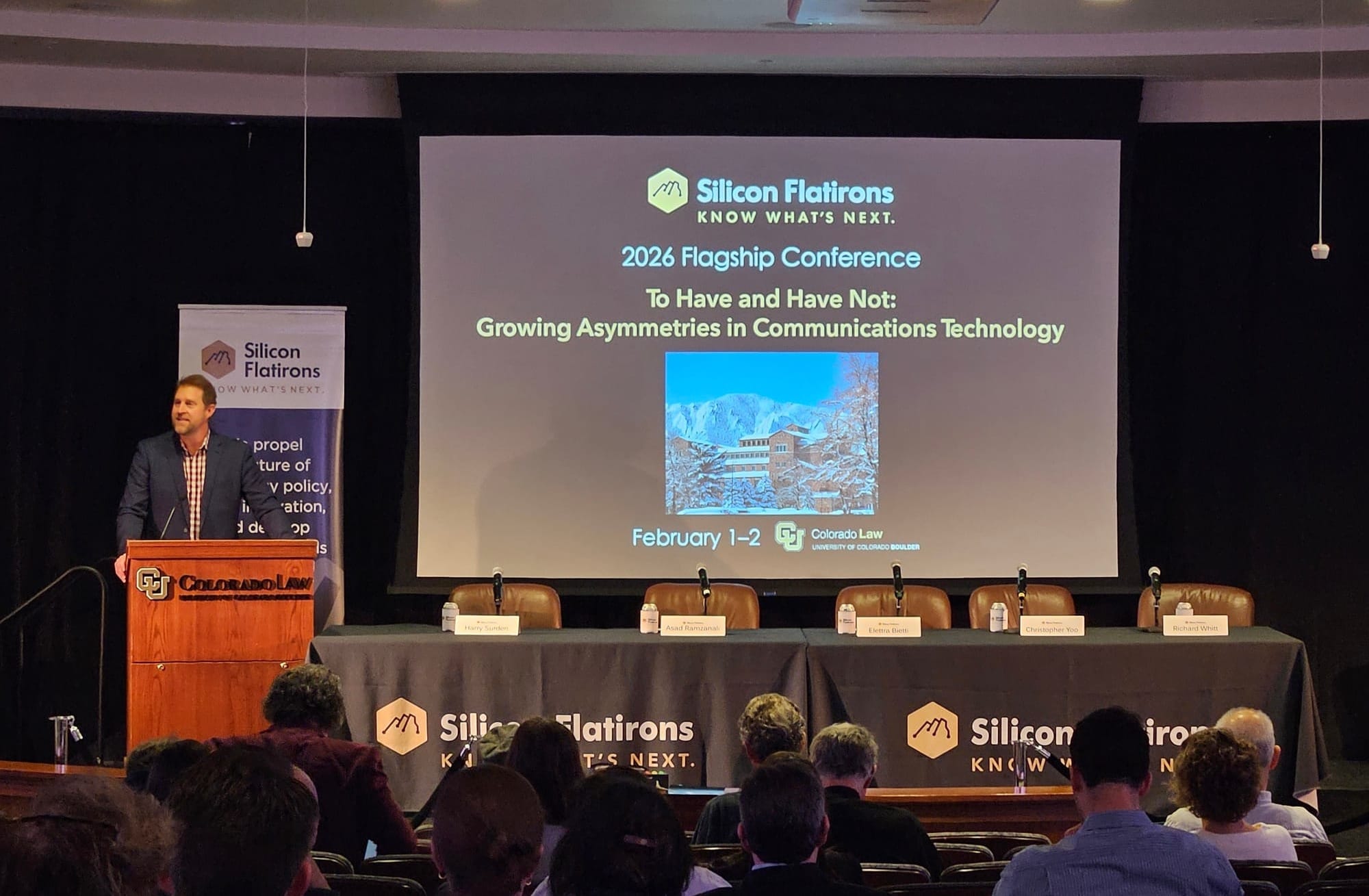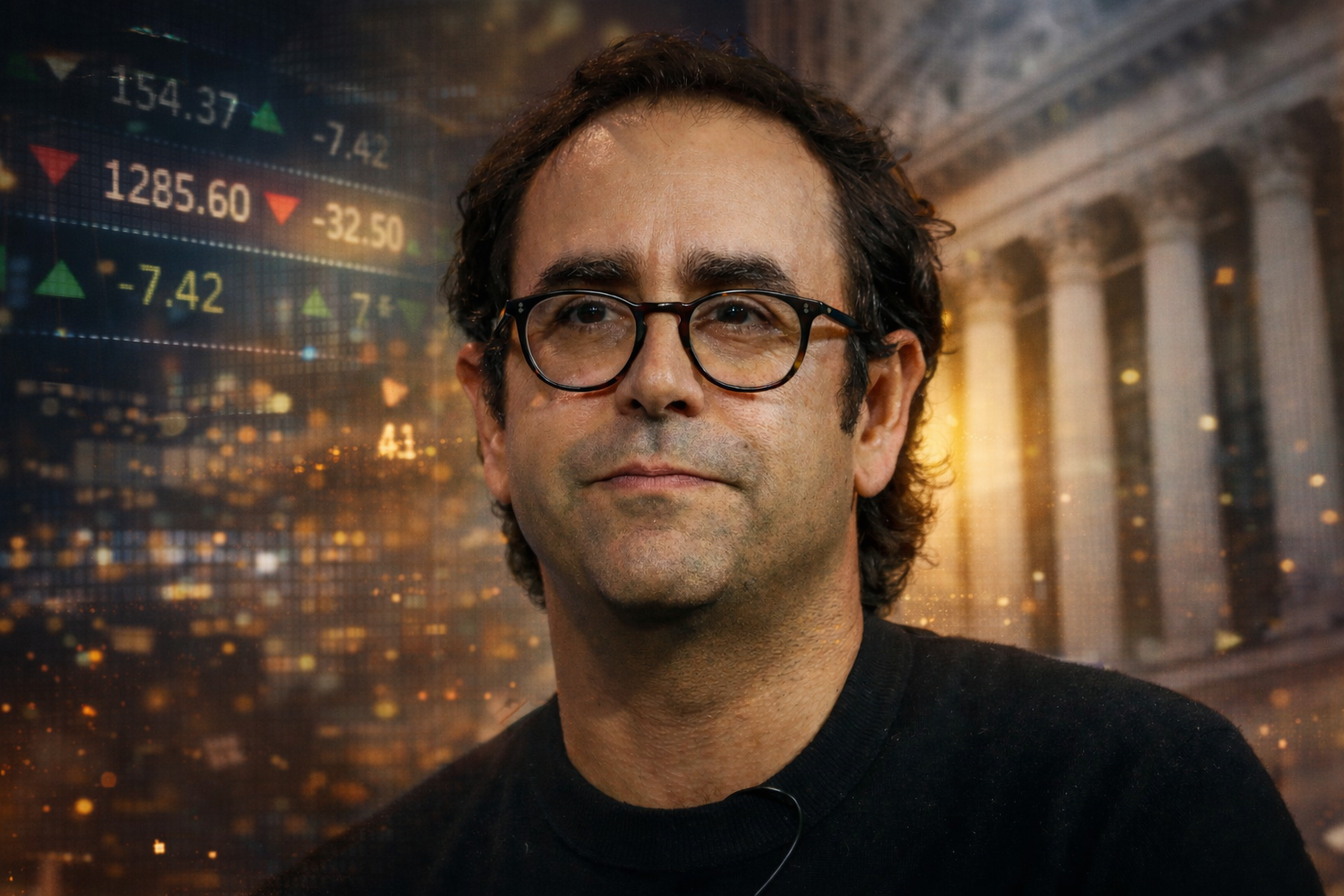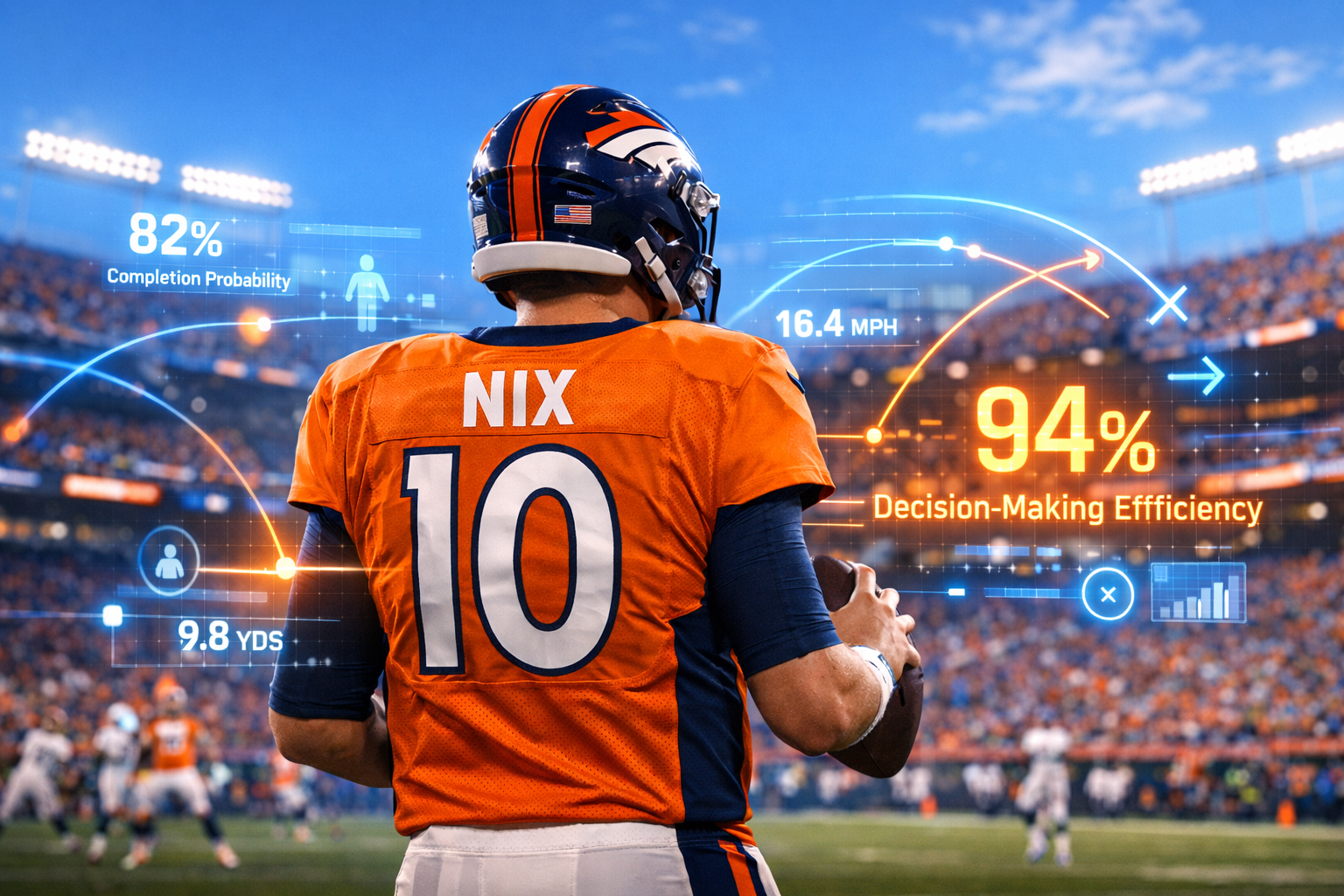“Don’t think about making art, just get it done. Let everyone else decide if it’s good or bad, whether they love it or hate it. While they are deciding, make even more art.” – Andy Warhol
Hello! I’m Fiona, a May 2025 CU Boulder graduate, a wannabe policy wonk, and as of recently, an anxious poet. A few weeks ago, I took Warhol’s advice to heart: I submitted a poem to the Rocky Mountain AI Interest Group (RMAIIG) about a flurry of emotions that the topic of AI evokes for me — and to a large extent, for my generation.
The competition was titled “AI and the Creative Arts,” and it was organized by Andres Sepulveda Morales, the founder of RMAIIG’s “Fort Collins AI for Everyone” subgroup. The challenge was to make some type of art, either by using AI, or addressing the phenomenon of AI, or both.
I intentionally did not use AI in my poem — and neither did I enlist help from any human beings! Instead, I wanted to capture the way in which our conversations about AI have expanded since November 30, 2022, and I felt inspired by my generation’s frustrations and anxieties regarding artificial intelligence.
Well, guess what happened? My poem won second place! That’s especially meaningful to me since the awards were People’s Choice selections. It’s humbling to have won alongside two incredibly impressive fellow creators and their works: In third place was Albert Yu with HERMES, an AI translation tool that specializes in rare languages; and in first place was Christina Pruneski, who painted the intricate and harrowing painting, “Four Horsemen of the AI-Pocalypse.”
To be honest, I was afraid that my poem might seem a bit too Luddite-ish for an RMAIIG audience. Perhaps I’m not alone in my concerns about AI, even among many techno-optimists.
This event has inspired me to start a column in Colorado AI News called “Dispatches from Gen Z.” And like any good political scientist (since that was my major), I must begin by first defining my terms:
Dispatch - according to the Cambridge Dictionary, a noun meaning “a report sent to you from another place.”
Gen(eration) Z - my generation! There’s some debate, but according to most experts, we were born between 1997 and 2012. We were preceded by the Millennials (Gen Y), who love to remind us that almost all of the technology and music that define our identities were invented or popularized by them. We’re followed by Gen Alpha, and frankly, we tend to regard them as unfavorably as every generation has ever regarded those who follow. The (unfortunately named) Gen Betas started being born this year, but that’s another conversation.
So, with that in mind, I want to delve (haha) into my poem, with the explicit caveat that these feelings and amateur analyses do NOT represent my entire generation. I can’t speak for all 70 million American Gen Z’ers. But these themes are frequent enough to comment upon.
Here's a link to the AI and the Creative Arts gallery, where you can find the complete version of AI Poem, along with all the other submissions. And below are the four stanzas (out of nine in the complete poem) that I'd like to analyze here:
First they came for my em dashes — and I love my em dashes.
They warned me against writing like the imitator writes
After praising the imitator for writing like me.
A majority of articles about AI in late 2022 and early 2023 focused on the predicted diminishing importance of written assignments for students, and to a broader extent, the possible obsolescence of higher education. This is how my generation was largely introduced to the AI debate.
Almost all of my professors forbade the use of AI, up through my graduation in May 2025. Stories abound of students — middle school through college — choosing to use AI anyway. The constant refrain from teachers was, “We can tell that you’re using AI by how soulless your essay sounds. And we have AI-detecting technology.”
Aside from the fact that one can train AI to mimic our writing style, and aside from the fact that an “arms race” between LLMs and AI detectors feels like duct-tape on a power hose…higher education is still missing the bigger picture.
AI is ubiquitous, it’s efficient when one understands good prompt engineering, and yet it still hallucinates and produces inaccuracies. This combination makes AI-use (and the verification of its outputs) a skill that employers will want us to have. When AI-use is banned for students, then learning opportunities are missed.
The imitator is thirsty.
Salt water quenches no one.
I seek debates re personhood —
I find only the dogs of war.
If one issue seems to ignite the resentment and anxiety of Gen Z, it’s the climate crisis. We’ve been handed a planet ravaged by corporate greed and the Global North’s overconsumption. As Al Gore has repeatedly said, “We’re polluting our atmosphere as if it is an open sewer.”
So, imagine Gen Z’s dismay at the fact that one bottle of fresh water is used for every 100-word email written by ChatGPT. Or that AI servers must be constantly cooled in order to function, and that salt water can’t be used for this purpose.
We were already headed toward a world in which future wars would be fought over water rather than oil. How much more quickly are we going to get there with AI?
California wildfires raged
And the robots needed their water.
How else would they have found the resolve
To optimize my cover letter writing
For jobs I won’t get
In industries we won’t see?
New graduates with bachelor’s degrees are standing on a metaphorical balcony, looking over the dried-up job market. The tech boom spurred by Covid has become a bust five years later.
Anthropic’s CEO Dario Amodei recently stated that AI will likely remove 50% of entry-level jobs in the workforce within the next one to five years.
Career-advancing jobs are precious in a world where experience is every recruiter’s top question. Entry-level industry roles from copywriting to computer science are being replaced with AI. So, we’re seeing an unemployment crisis among fresh graduates now…and perhaps a dearth-of-skills crisis in the future if AI entirely disrupts the career ladder.
Overpopulation is a confusing fear
In a world where the lonely build machines designed to teach us
How to be
Amongst each other.
Unfortunately, overpopulation will greatly contribute to the climate crisis if we continue to allocate resources as poorly as our current global economic systems dictate.
And yet, at least in the Global North among privileged communities (where, let’s be honest, most of the AI discourse is taking place), fears of overpopulation might seem strange when our culture is struggling to nurture community.
Let me explain my analysis of that final stanza a little further:
American Gen Zers are known for many things, but robust social skills is not one of them. We are often labelled as antisocial, overly-anxious, and addicted to our phones…and I don’t necessarily disagree. However, I might argue that all tech-adopting generations tend to be following these patterns. Across generations, our post-pandemic culture has been lamenting the lack of authentic connectedness in American culture. For Gen Z specifically, TikTok and videogames are frequently used as nightly, hours-long rituals — sometimes in community, but mostly not. I’d wager that all generations are witnessing a cultural shift toward solitary modes of entertainment.
The 2018 documentary Join or Die, based on the book Bowling Alone, describes a microcosm of the result: The total number of Americans going bowling has risen, yet that has coincided with a sharp decline in the number of organized bowling leagues. This means that even as more people are occasionally engaging in a particular activity, there may be less real community emerging.
Numerous articles have addressed this trend in other contexts besides bowling, and no one would argue that technology (and now, specifically AI) is the single cause of this trend. However, if you speak to Gen Z’ers about this issue, you might find that many of them say something like, “I know I sound like a Boomer, but social media and the internet are part of what’s ruining our culture’s sense of community.” Different generations might use different evidence to assert this point, but I’ve largely seen a lot of agreement.
Here’s another angle: Colorado AI News tackled the AI version of the Loneliness-and-Tech debate a year ago with this article, which discussed a business that produced AI amulets that would listen to our conversations or spoken-aloud thoughts. The devices would text a friend-like response to the user repeatedly throughout its use. Naturally, this ignited a fiery debate over the pros and cons of whether AI was solving or exacerbating our societal loneliness.
This brings me back to a very humanist point made at the RMAIIG “AI and the Creative Arts” showcase. Kyle Shannon, a Denver-based AI guru and host of the AI Salon, had recently shared an epiphany on LinkedIn and TikTok. RMAIIG’s founder, Dan Murray, shared it with the audience:
“I realized that the question should not be ‘How can I get the most out of AI’, but rather, ‘How can I get the most out of myself using AI?’”
I love this idea. Artificial intelligence does not have to threaten our value as humans. I chose to not use AI in the writing of my poem not because I’m morally opposed to the idea of AI-written poetry, but because the process of selecting words myself was the art that I needed to express in that moment. Artificial intelligence can be my muse, and also my research assistant.
We’ve already watched technology enable both the best of humanity and the worst of humanity. Perhaps, in between discussions about the progression of AI agents, we should also analyze our own agency in the matter.
I’d like to expand upon this idea and its political and humanist implications — and that’s what this column is for! I’m incredibly interested in the inter- and intra-generational conversations about artificial intelligence, and as I explore these subjects more, I’d really enjoy sharing my findings with you. Welcome to Dispatches from Gen Z.

